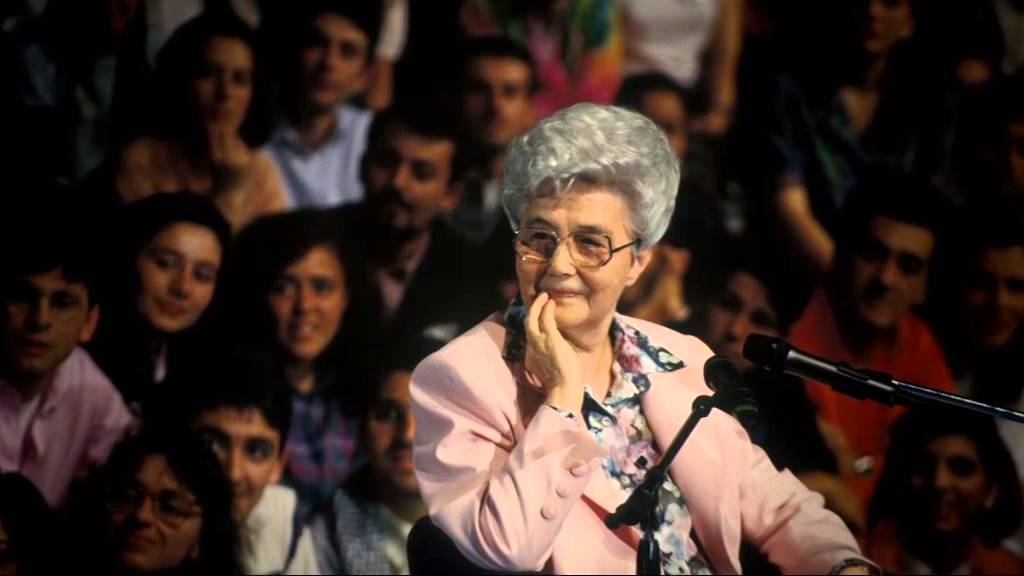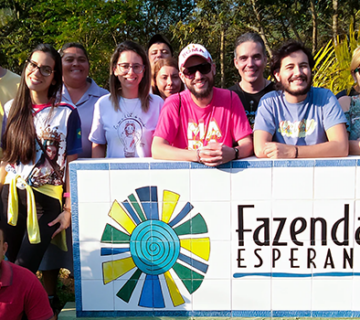After having retraced features of the youth reality in the ‘80s, emerging from the private life following the riots in the squares of different worldwide capital cities, Chiara Lubich explains how the young people “have believed in the possibility of the world’s rebirth and they have rolled up their sleeves in order to give their contribution. They have done so through a wealth of incredible initiatives.” And she continues:
“They are present, walking along the different pathways in order to reach the goal of a united world. There is the pathway of unity among races, of unity among peoples; the pathway of development, of unity between the rich and the poor, of unity among generations; the pathway of unity among nations at war, in order to achieve peace; among the faithful of different religions, between people and nature; among persons of different ideologies; the pathway of unity among ethnic minorities, of unity with those who are alone or who suffer in every way.
Without being concerned about what people might think of them, they have recognized this pathway in Jesus. ‘I am the way’ (Jn 14:6), Jesus said, and they have followed Him trying to live His doctrine to the letter by putting the Word of God into practice. … Moreover, in whom can young people trust if not in Him? He alone can help them to realize the ideals that they have in their hearts and that they seek to defend.
They love freedom; they strive for it; they want it. Who can give them freedom if not Jesus, who said: “If you remain in my word … you will know the truth and the truth will set you free” (Jn 8:31-32).
Young people want respect for nature. In many countries, they struggle to save people from self-destruction due to pollution. Who can respond to this desire more than the One who has created nature for human beings?
Young people love peace; they want peace. Who can guarantee peace more than the One who said: “Peace I leave with you; my peace I give you; not as the world gives do I give it you” (Jn 14:27).
Young people want human rights to be respected. Did Christ not come on earth precisely to announce the Good News to the poor, to proclaim liberty to prisoners, to give sight to the blind and the oppressed back their freedom? (see Lk 4:18).
Young people ask for social justice. Where do they find the courage to come face to face with contradictions, misery and hypocrisy, the open wounds of a consumer society, if not in Him who calls blessed “…the hungry and thirsty for justice?” (Mt 5:6).
Young people do not love divisions. Who can satisfy them more than the One who sees humanity as one and who came to knock down the barriers between different groups, ethnicity, cultures and peoples?
Young people are attracted to non-violence. Where can they find the incarnation of their ideal if not in the One who has told us to love even our enemies, thus bringing non-violence to its extreme consequences?
Young people love solidarity and the communion of goods between the rich and the poor. Jesus, who told us to give to whoever asks and not to turn our backs on whoever asks for a loan, is their model of solidarity. Just as the first Christians had understood Jesus’ requirements, so that no one kept any property as his or her own, likewise, young people find all their needs satisfied in Jesus. … Yes, young people with Christ, young people and Christ, the ways and the Way: this is the binomial which can give us true hope. …
Go ahead, my dear young people, with total confidence. Go ahead with perseverance. Enlighten people with your actions. Let your faith shine forth before a humanity which often drags on with a life that is mediocre and meaningless. Show it how disunity can be avoided and how unity can be built. Speak out clearly on how this Ideal is not a utopia; indeed, only those who have great ideals make history.”
(Extract from: Message by Chiara Lubich at the Genfest, Mollens (Switzerland), 24 March 1987 – Source: www.centrochiaralubich.org)


 Italiano
Italiano Español
Español Français
Français Português
Português




No comment